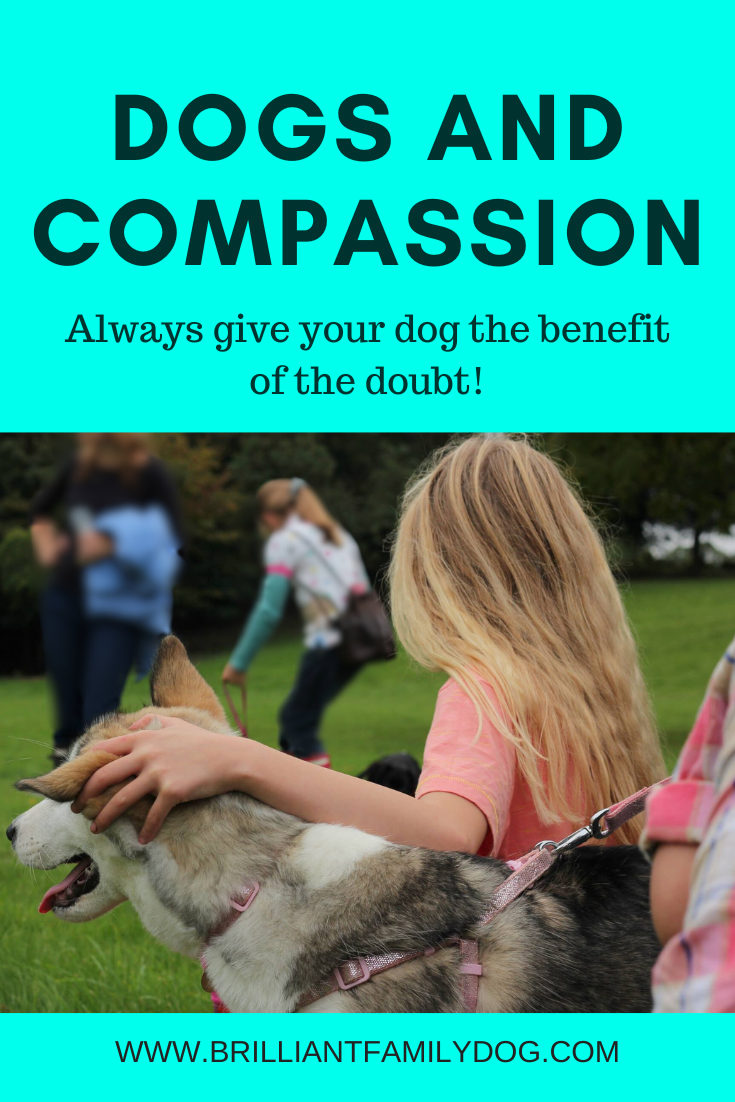“Judging your dog prevents true compassion.”
What can this mean?
We judge everything every day.
Everything.
The weather, our breakfast, the person on the bus, our partner, our boss, ourselves.
“Judgy, judgy!” as Stanford Blatch would say. 😎
And we judge our dog.
The thing is, while we may judge all those other things - silently and faux-respectfully - we think our dog doesn’t know what we’re saying, so we judge him out loud.
“You’re a useless dog.”
“She’s stupid.”
“He’s stubborn.”
“She won’t listen to me.”
“You never …”
or its terrible twin,
“You always …”
✋ Stop!
Your dog understands exactly what you’re saying. While the nuance of what has caused this displeasure may be unknown to him, nevertheless, he knows full well that he has offended you in some mysterious way.
Trouble is, he has no way of knowing what you’d like him to do instead.
There’s immediately a barrier between you.
You’re not so nice to be around. He’s unsure of your reaction. The division grows.
Put the boot on the other paw
Imagine for a moment, that someone else was saying these things to you.
Useless.
Stubborn.
Stupid.
You never …
You always …
How would you feel?
Now just imagine the person saying these things was talking in another language.
Do you think you’d get the gist of their emotion?
Do you think you’d realise that something was amiss?
And what would you do to try to appease them?
This is where people will say “My dog knows when he’s done wrong,” because the dog is grovelling, “looking guilty”. In fact the dog is simply trying to appease you, just as you would try to appease that bully.
And if you could understand what was being said … imagine you’re a small child hearing your mother tell her friends, “She’s stupid, stubborn, useless …” and all the rest.
Even without having the ability to change things, you’d be squirming. You’d know you were in some way second-rate, not measuring up - a disappointment.
Dogs are just like us!
Dogs are sentient beings. That’s enshrined in law, in case you didn’t know.
This means they FEEL things.
Just as we do.
Please spare their feelings by speaking only kindly and encouragingly about them - just as a good parent would speak proudly and kindly about their child.
Labels
On top of the fact that the way we talk to, or about, the animals in our care is a humane issue, if you label children, friends, partners, or animals, like this, you are shooting yourself in the foot.
Why?
How can you expect your dog to respond intelligently, thoughtfully, responsively, if you’ve just labelled him thick?
It will colour the way you see your dog, and limit what you can teach him.
Did you hear of the experiment where a class was randomly divided in two? One teacher was told he had the brightest kids, the other that he had the stupid ones.
Guess what?
The two sections of the class diverged and fulfilled their description. The “bright” children excelled; the “stupid” children failed.
Yet they were, in fact, all the same.
How much damage can we do by passing judgment?
Can you see now, why “Judging your dog prevents true compassion”?
For a thoughtful, kind, and dog-friendly way of working with the dog in front of you (rather than the one you think you wish you had!) check out the books here.
You may also like to read:
LABELLING YOUR DOG AND YOURSELF
HOORAY FOR CHANGE FOR YOUR DOG! DISCARD THE OLD LABELS


